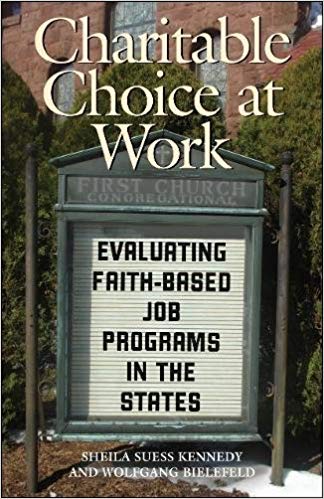Too often, say its critics, U.S. domestic policy is founded on ideology rather than evidence. Take “Charitable Choice”: legislation enacted with the assumption that faith-based organizations can offer the best assistance to the needy at the lowest cost. The Charitable Choice provision of the 1996 Welfare Reform Act―buttressed by President Bush’s Faith-Based Initiative of 2000―encouraged religious organizations, including congregations, to bid on government contracts to provide social services. But in neither year was data available to prove or disprove the effectiveness of such an approach.
Charitable Choice at Work fills this gap with a comprehensive look at the evidence for and against faith-based initiatives. Sheila Suess Kennedy and Wolfgang Bielefeld review the movement’s historical context along with legal analysis of constitutional concerns including privatization, federalism, and separation of church and state. Using both qualitative and, where possible, statistical data, the authors analyze the performance of job placement programs in three states with a representative range of religious, political, and demographic traits―Massachusetts, Indiana, and North Carolina. Throughout, they focus on measurable outcomes as they compare non-faith-based with faith-based organizations, nonprofits with for-profits, and the logistics of contracting before and after Charitable Choice.
Among their findings: in states where such information is available, the composition of social service contractor pools has changed very little. Reflecting their varied political cultures, states have funded programs differently. Faith-based organizations have not been eager to seek government contracts, perhaps wary of additional legal restraints and reporting burdens.
The authors conclude that faith-based organizations appear no more effective than secular organizations at government-funded social service provision, that there has been no dramatic change in the social welfare landscape since Charitable Choice, and that the constitutional concerns of its detractors may be valid. This empirical study penetrates the fog of the culture wars, moving past controversy over the role of religion in public life to offer pragmatic suggestions for policymakers and organizations who must decide how best to assist the needy.


